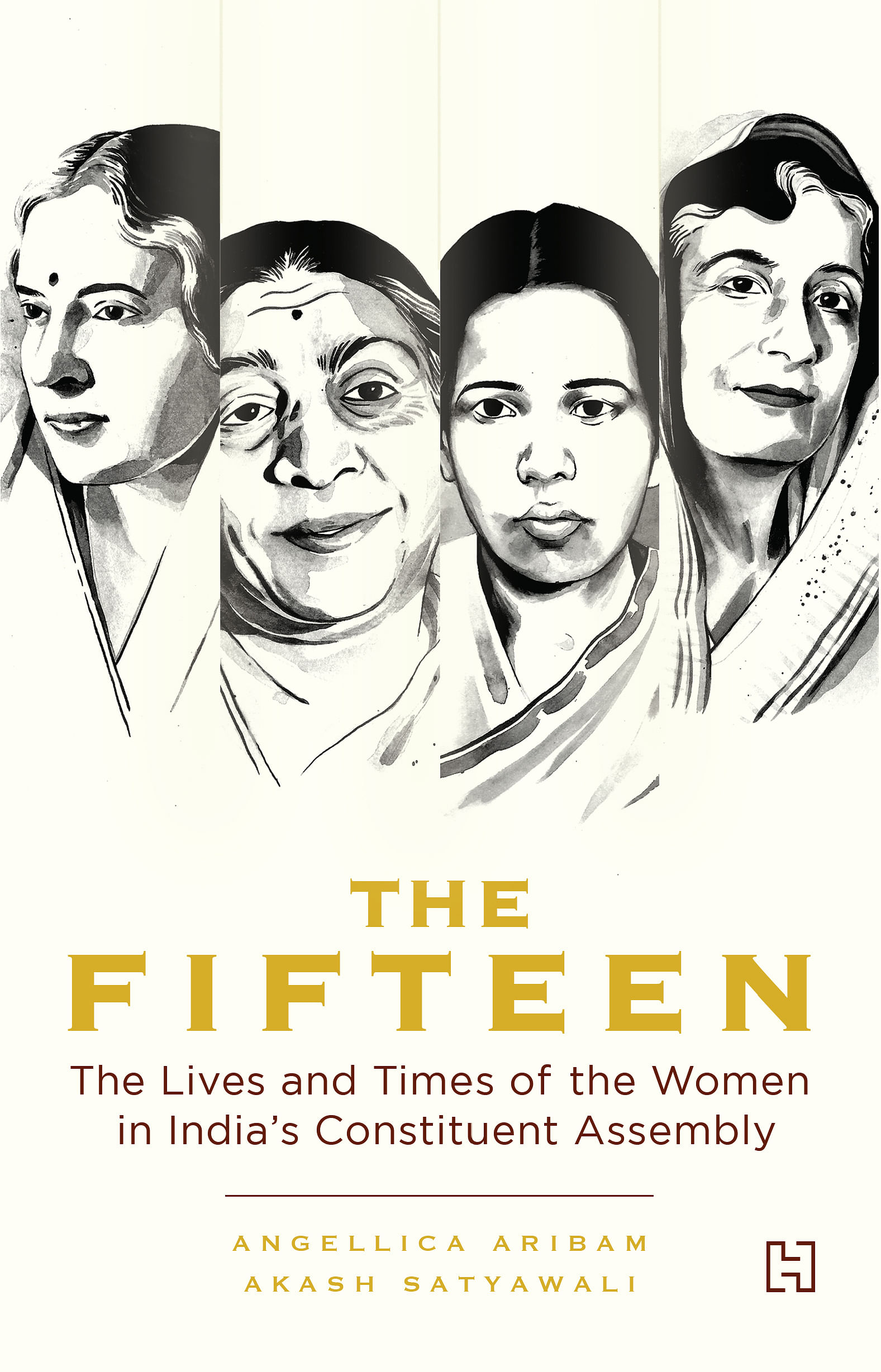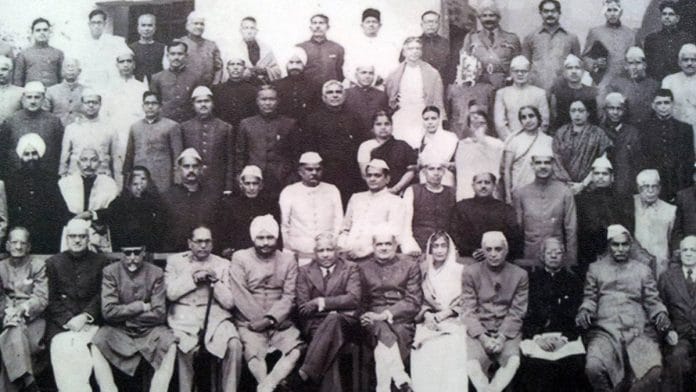During the Constituent Assembly debates, Kamala was vocal in her support for the Hindu Code Bill and countered passionately those opposed to various parts of the Bill. Praising the Bill and championing women’s rights, she said, ‘My personal feeling is that this Bill will prove as sort of a panacea for our women community and the progress of our Indian society, and this will go a long way to benefit our womenfolk who are even today being degraded to the lowest ebb.’
In support of the provision to end polygamy in the Bill, Kamala emphasized the mental trauma faced by women whose husbands took more than one wife. She opined, ‘It is a great injustice done to woman that the husband is allowed to enter into matrimony once, twice, thrice or even four times in the very life time of the legally wedded wife. For a woman this custom is horribly painful and demands utmost sympathy… For a woman, no other suffering is more tormenting than the distress of having a co-wife.’
The provision for the right to divorce in the Bill was criticized by various members of the assembly calling it a Western influence that would lead to the breakdown of our society. Kamala’s stance on divorce was clear and she addressed their concerns in the following words: ‘The people here have come to believe that the right to divorce provided in the Bill would result in the destruction of the structure of our society and our culture would go to dogs. I do not understand how people give rise to such apprehensions and how they resort to such talks.’
Well-versed with the Bill, Kamala added, ‘But as far as I have studied this Bill I have not come across anything concerning the dissolution of marriages that can be called an innovation, or anything that has not been allowed and permitted by our sacred texts and holy scriptures.’ She backed up her argument by adding, ‘All the conditions that have been laid down for the dissolution of marriages, or in what manner the marriages can be dissolved, or for what reasons divorce can be granted. I think all these conditions do exist in our Shastras.’
Kamala didn’t agree with the anti-Hinduism colour that the Bill was painted in by some members of the assembly, ‘Those who oppose this Bill have expressed the opinion that this will prove harmful to our religion as well as culture. This thing does not appeal to me at all. This is another thing that the brain and heart of our countrymen have been framed in such a way that anything said in the name of religion highly appeals to the sentiments of the people.
On the altar of this very religion – in what manner did we accentuate our communal feelings?’ She added, ‘In the name of this very religion, we have seen the murder of Mahatma Gandhi – the father of the Nation.’
She was speaking about the death of Gandhi, who was murdered on 30 January 1948, by radicals who blamed him for the partition of India and Pakistan. The Hindu Code Bill faced severe opposition on another count – equal inheritance rights for daughters. The provision was dubbed as ‘foreign culture’. According to her, this was not true.
Also read: Why Chhota Ghallughara is called the ‘Smaller Holocaust’. 7000 Sikhs were massacred in 1746
Kamala based her arguments on Indian literature – specifically folk songs performed at weddings since time immemorial. She said, ‘This sentiment finds ample expression in our folksongs which have existed for the last hundreds of years. This sentiment did not get into our folksongs at the time of our mothers and sisters but has been there since the times of our grand and great-grandmothers when there was not even a trace of foreign culture anywhere and when it had not set any kind of seal on our culture.’
She expressly stated that it was an injustice to deny daughters a share of their father’s property. Kamala argued further, ‘I think that the provision relating to the daughter having a share in her father’s property is very much in consonance with the times and compatible with our faith and culture and I hope it will be considered in a very generous spirit. Nature has made a boy and a girl equal in the eyes of their parents.
Then why is it that a boy should have a share in his father’s property but a girl should have none?’ Despite the strong arguments put forth by various members including Kamala, the Hindu Code Bill was shelved, and it took many years for it to see the light of the day yet again. The work she and many other women leaders put into the Bill would benefit Indian women many years later.
Kamala continued to serve as a member of the Provisional Parliament till 1952.25 After that, she worked for the education of girls in rural areas. She contested the 1962 Lok Sabha elections from Hapur in Uttar Pradesh on a Congress ticket. She secured 81,999 votes and defeated her nearest opponent with a 28,000-vote margin.
In her political career, she focused on making girls and women independent through education and skilling like sewing, weaving, pottery, etc. She also helped women get trainings through village industries so that they could have a source of income.
As seen from her speeches on the Hindu Code Bill, Kamala was a rationalist who had a deep understanding of how patriarchy functions in the society. In an era when any discussion on mental health was unheard of, she used her pen to draw attention to the subject through fictional stories of women who were oppressed and gaslit in marriages. Not just that, Kamala used the floor of the highest law-making body of the country to highlight the mental health trauma and angst of women whose husbands took many wives.
Her knowledge about Indian literature also enriched the law-making process and brought in an interesting perspective to her arguments. Even though her achievements and contributions were remarkable, there isn’t much public record available about her body of work.
 This excerpt from Angellica Aribam and Akash Satyawali’s book, ‘The Fifteen: The Lives and Times of Women in India’s Constituent Assembly’ has been published with permission from Hachette India.
This excerpt from Angellica Aribam and Akash Satyawali’s book, ‘The Fifteen: The Lives and Times of Women in India’s Constituent Assembly’ has been published with permission from Hachette India.






